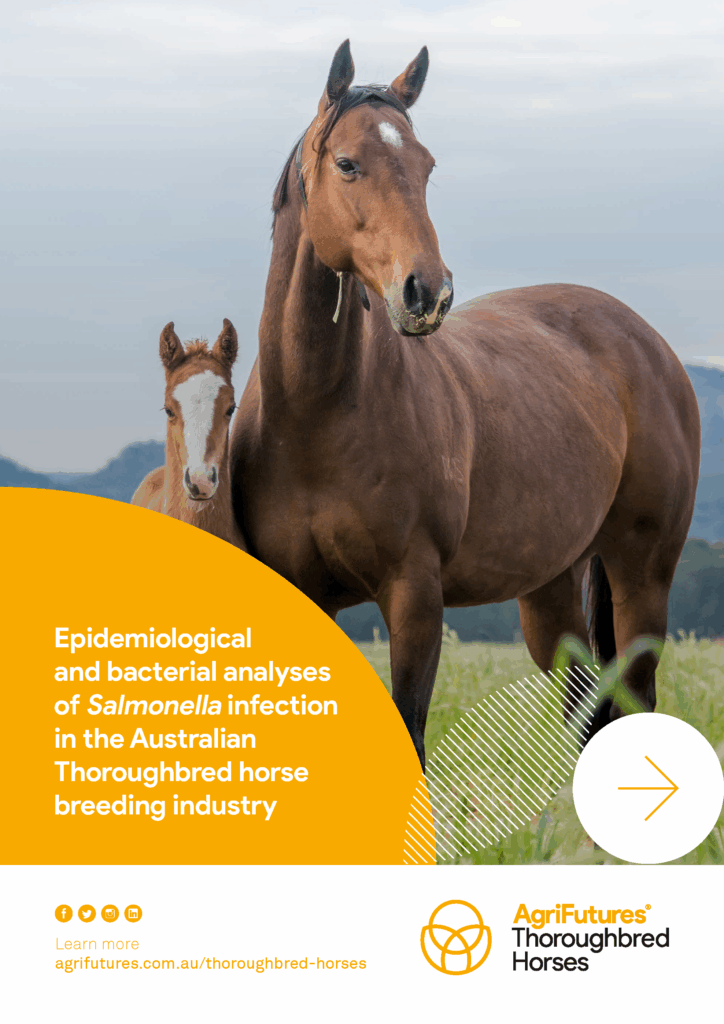Snapshot: Antimicrobial prescribing guidelines for horses
This document represents the first comprehensive resource providing detailed guidance on the management and treatment of common bacterial diseases in horses in Australia. Key highlights...
 THOROUGHBRED HORSES
THOROUGHBRED HORSES 
44 pages
Published: 25 Aug 2025
Author(s): Kristopher Hughes
ISBN: 978-1-76053-569-8
Download report PDF
DownloadPurchase a hard copy - AUD $50
Salmonella infection can result in major health consequences in horses. The recommendations drawn from this study are crucial for improving biosecurity measures and infection control practices within the Thoroughbred horse breeding industry. Infectious diseases can cause significant equine illness and death, seriously impacting the productivity of the Australian Thoroughbred breeding industry and leading to economic losses. One of the challenges the industry faces is the management and control of infectious disease caused by Salmonella. This report provides a comprehensive analysis of the prevalence, risk factors, and impacts of Salmonella infection within the Thoroughbred breeding industry.
The need for this work arises from the limited understanding of Salmonella infection in Australian horses, including the prevalence of shedding, risk factors, and the serotypes involved. Previous studies have been outdated and limited in scope, leaving key industry stakeholders without the necessary information to address existing challenges effectively. This project aimed to fill these knowledge gaps by providing contemporary data and evidence-based recommendations for managing Salmonella infection in horses.
Key findings from this study reveal that the prevalence of Salmonella shedding in hospitalised horses is significant, with certain risk factors such as recent colic surgery, pyrexia, and inappetence being strongly associated with increased shedding. The study also highlights the diversity of Salmonella serotypes affecting horses in Australia, with S. Muenster being the predominant serotype. Importantly, the study underscores the need for active surveillance and risk mitigation strategies in veterinary hospitals to reduce the impact of Salmonella on horse health and welfare.
The low prevalence of Salmonella on Australian Thoroughbred stud farms indicate that horse-horse transmission on well managed stud farms is likely to be very low. Healthy horses on stud farms that are not exposed to stress (including transport, feed withholding) are substantially less likely to develop Salmonella shedding in comparison to unwell horses presented to veterinary hospitals.
By implementing the strategies from this study, we can enhance the health and welfare of horses, safeguard the industry from the economic impacts of disease outbreaks, and protect public health given the zoonotic nature of Salmonella.